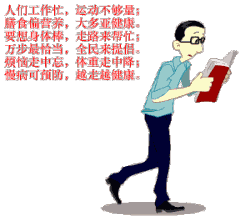Foreword
The International Agency for Research on Cancer (IARC) was founded by Resolution of the World Health Assembly in September 1965. At this time, although data were sparse, cancer was widely considered to be a disease of westernised, high-resource, industrialised countries. Today the situation has changed dramatically, with the majority of the global cancer burden now found in low- and medium-resource countries.
The global burden of cancer has more than doubled during the past 30 years. In 2008, it is estimated that there were over 12 million new cases of cancer diagnosed, 7 million deaths from cancer and 25 million persons alive with cancer. The continued growth and ageing of the world’s population will greatly affect the cancer burden. By 2030, it could be expected that there could be 27 million incident cases of cancer, 17 million cancer deaths annually and 75 million persons alive with cancer within five years of diagnosis.
The greatest impact of this increase will fall on the low- and medium-resource countries. Such countries are, arguably, harder hit by cancer than the high-resource countries. These countries frequently have a limited healthcare budget and a high background level of communicable disease. Cancer treatment facilities are not universally available and life-saving therapies are frequently unavailable for economic reasons. Cancer, and other chronic diseases that are becoming more common, can cause devastating damage to entire families when the head of household and frequently the only source of income for a frequently an extended family, succumbs to cancer.
The rapid increase in the cancer burden represents a crisis for public health and health systems worldwide. A major issue for many countries, even among high-resource countries, will be finding sufficient funds to treat all cancer patients effectively and provide palliative, supportive and terminal care for the large numbers of cancers which will be diagnosed in the coming years.
However, there are prospects for cancer prevention in all resource settings. Tobacco smoking is the best-understood major human carcinogen. One third of cancers in high-resource countries are caused by tobacco smoking, which also causes a large proportion of deaths from other chronic disease including vascular disease and chronic obstructive pulmonary disease. The worst of the tobacco epidemic has yet to materialise in low-resource countries. There is a 40-year temporal gap between big changes in tobacco prevalence in a population and the peak of the disease epidemic
caused by this habit. Tobacco control is a major task for countries irrespective of their resource setting.
Modifiable risk factors for cancer have been identified, including alcohol consumption, excessive exposure to sunlight, lack of physical activity, overweight and obesity, dietary factors, occupational exposures and chronic infection. Effective prevention will reduce the risk of cancer, and effective screening will allow many others to be successfully treated for their disease.
In low-resource countries, many common cancers such as primary liver cancer, cervix cancer, nasopharynx cancer, Kaposi Sarcoma and stomach cancer are caused by chronic infections with different agents. In these circumstances, there are now prospects for prevention via vaccination for
hepatitis B (liver cancer) and human papillomavirus (cervix cancer). The major issue in the poorest countries is delivery of the prevention action at a price that is affordable for the countries’ health systems.
Identification of risk factors for cancers is not a simple task, and delivering effective prevention can be even more difficult. Prevention research must take on a higher profile and greater importance in the broad cancer research strategy and in those cancer plans currently being developed. An additional advantage of prevention is that many key risk factors for cancer are shared with other common conditions such as vascular disease and diabetes.
A complete understanding of the mechanisms of the development of cancer is very unlikely to come about in the foreseeable future, making impossible reliance on a single approach to prevent cancer and deaths from the disease. Translational research in its broadest meaning is of paramount
importance, covering the spectrum from translating cutting-edge scientific discovery into new approaches to cancer treatment to translating information about cancer risk factors into changes in population behaviour.
Priorities clearly must be identified to tackle the global cancer burden. Such priorities must include a focus on low- and medium-resource countries and the identification, delivery and evaluation of effective cancer control measures. Focus should be on the four pillars of cancer control: prevent those cancers which can be prevented; treat those cancers that can be treated; cure those cancers that can be cured; and provide palliation whenever palliation is required.
Peter Boyle
Director
International Agency for Research on Cancer
Acknowledgements
It is a great pleasure to acknowledge the enthusiasm of all those who have contributed, directly and indirectly, to the preparation of the World Cancer Report 2008. In addition to the Editors and the Contributors, it is important to acknowledge the great efforts of Sharon Grant (for her assistance with the bibliography), Georges Mollon and Roland Dray (for their assistance with the illustrations) and the staff of Mondofragilis and Naturaprint for their outstanding work on the layout and finalisation of the document. Caroline Granger and Eric Duell were central figures in the coordination process of this multi-author production, and it is a pleasure to acknowledge Bernard Stewart and Paul Kleihues for their efforts in developing the first World Cancer Report.




